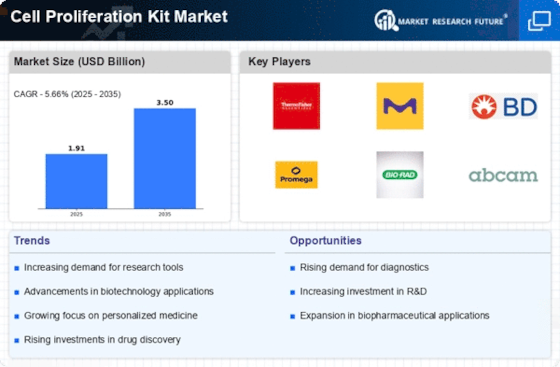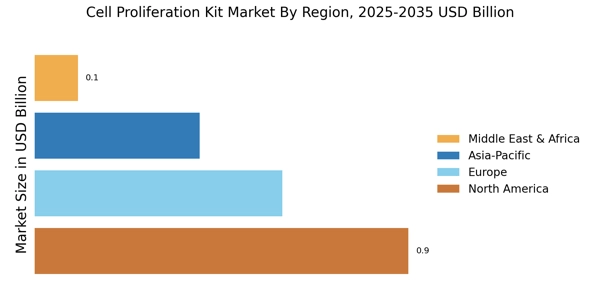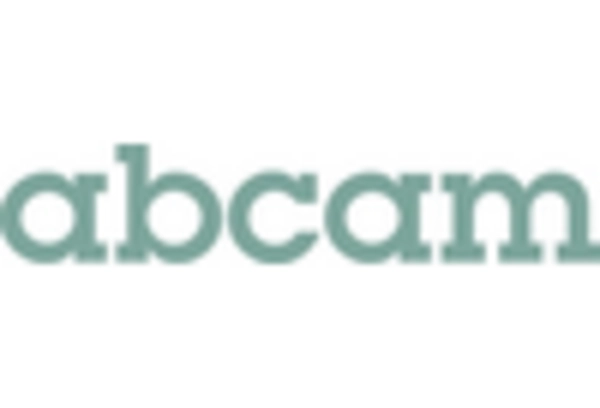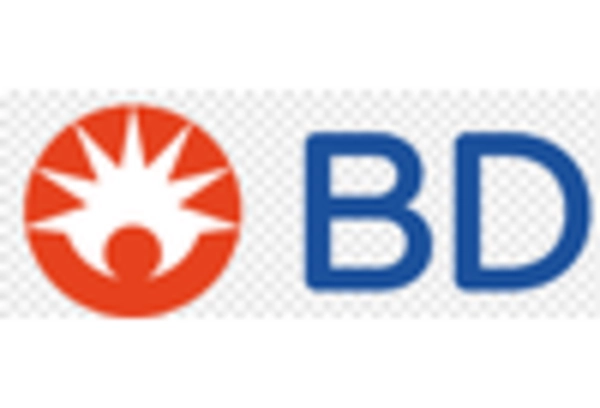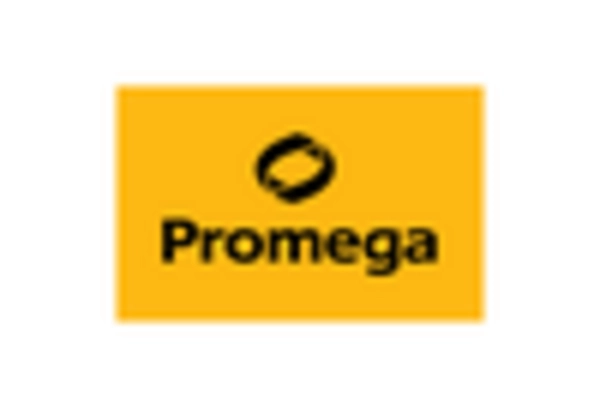Advancements in Biotechnology
Technological innovations in biotechnology are transforming the landscape of the Cell Proliferation Kit Market. The development of more sophisticated and user-friendly kits enhances the accuracy and efficiency of cell proliferation assays. Innovations such as high-throughput screening and automated systems allow researchers to conduct experiments with greater precision and speed. This is particularly relevant in drug discovery and development, where understanding cell behavior is crucial. The market is witnessing a surge in the introduction of novel kits that incorporate advanced reagents and detection methods, which could potentially improve assay sensitivity and specificity. As a result, the Cell Proliferation Kit Market is likely to experience robust growth driven by these technological advancements, catering to the evolving needs of researchers and laboratories.
Emerging Markets and Global Expansion
The Cell Proliferation Kit Market is experiencing growth due to the emergence of new markets and the expansion of existing ones. Developing regions are increasingly investing in healthcare infrastructure and research capabilities, leading to a heightened demand for advanced laboratory tools, including cell proliferation kits. As these markets evolve, they present significant opportunities for manufacturers and suppliers to introduce their products. The increasing collaboration between academic institutions and industry players in these regions further stimulates market growth. Additionally, the globalization of research initiatives encourages the sharing of knowledge and resources, which could enhance the adoption of cell proliferation technologies. As a result, the Cell Proliferation Kit Market is likely to benefit from this trend, as it aligns with the broader movement towards enhancing scientific research capabilities worldwide.
Rising Focus on Personalized Medicine
The shift towards personalized medicine is reshaping the Cell Proliferation Kit Market. As healthcare moves away from a one-size-fits-all approach, there is an increasing emphasis on tailoring treatments to individual patient profiles. Cell proliferation assays play a crucial role in this paradigm shift, as they provide insights into how specific cell types respond to various therapies. This trend is particularly evident in oncology, where understanding tumor cell behavior is essential for developing effective treatment plans. The market is likely to expand as researchers and clinicians seek reliable tools to assess cell proliferation in the context of personalized therapies. Consequently, the Cell Proliferation Kit Market is poised for growth, driven by the demand for innovative solutions that support the development of customized treatment strategies.
Increasing Prevalence of Chronic Diseases
The rising incidence of chronic diseases, particularly cancer, is a pivotal driver for the Cell Proliferation Kit Market. As the global population ages, the demand for effective diagnostic and therapeutic tools escalates. According to recent statistics, cancer cases are projected to increase significantly, necessitating advanced research methodologies. This trend compels researchers and healthcare professionals to utilize cell proliferation kits to better understand disease mechanisms and develop targeted therapies. The Cell Proliferation Kit Market is thus positioned to benefit from this growing need, as these kits are essential for studying cell growth and response to treatments. Furthermore, the increasing focus on personalized medicine amplifies the demand for precise and reliable cell proliferation assays, further propelling market growth.
Growing Investment in Research and Development
The Cell Proliferation Kit Market is significantly influenced by the increasing investment in research and development across various sectors, including pharmaceuticals and biotechnology. Governments and private organizations are allocating substantial funds to support innovative research initiatives aimed at understanding cellular mechanisms and developing new therapies. This influx of capital fosters an environment conducive to the advancement of cell proliferation technologies. For instance, the pharmaceutical industry is projected to invest billions in R&D, which directly correlates with the demand for cell proliferation kits. As researchers seek to explore new therapeutic avenues, the reliance on these kits for accurate data generation becomes paramount, thereby driving market growth. The Cell Proliferation Kit Market stands to gain from this trend as it aligns with the broader objectives of enhancing healthcare outcomes.


